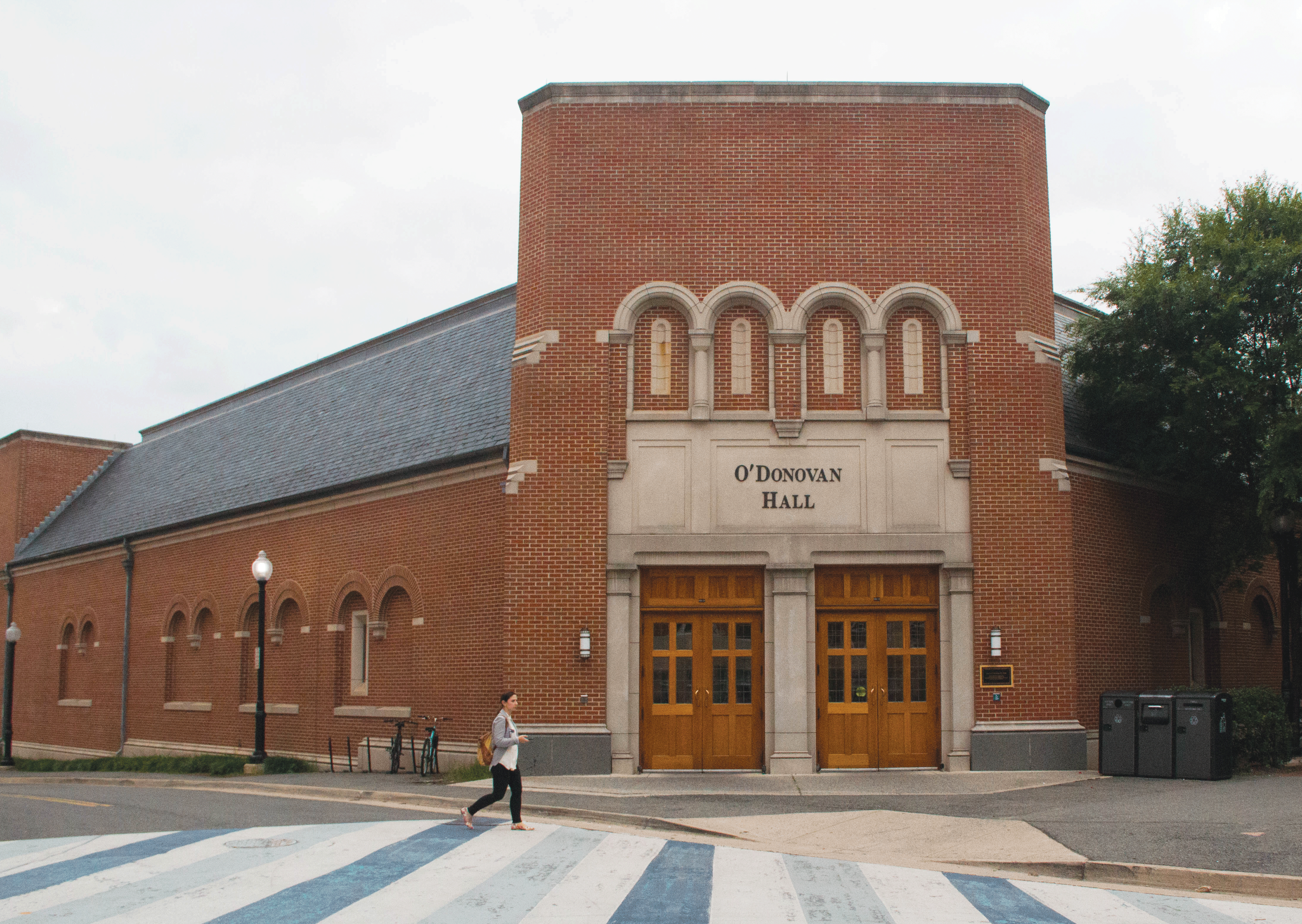
Although students were heavily involved in selecting Aramark as the university’s dining contractor for the next 10 years, dining workers were not included in the discussion.
According to Georgetown University Student Association President Enushe Khan (MSB ’17), dining workers were not included in the selection process because their involvement as Aramark employees could be a conflict of interest. However, students on the Office of Auxiliary Business Services’ Request for Proposal Committee, which participated in the contract negotiations, advocated for the university to retain current dining employees.
“We made it very clear in the RFP that worker job security was important. As a result, the administration was very clear to the vendors that we really need our workers to be able to keep their jobs,” Khan said.
Chief Operating Officer Christopher Augostini announced Aramark’s selection Nov. 1, which brings with it a renovation of O’Donovan Hall to include outside vendors and healthier dining options, as well as new meal exchange options.
Students participated in a dining town hall in January and attended vendor open houses from both Aramark and Sodexo in September, while representatives from GUSA worked with administrators in scoring the vendors’ proposals and finalizing the university’s new dining contract.
GUSA Dining and Auxiliary Services Policy Team Chair Mark Camilli (COL ’19) said the partnership was streamlined to incorporate student opinions.
“The students incorporated in the dining RFP working group were students in GUSA, and that was a very collaborative process,” Camilli said. “Also, GUSA has many meetings with administration with problems that are going on.”
Khan said student engagement was a key factor in the final decision.
“Both vendors have said they have never seen students so engaged in the process, which is huge, and I think it’s because we as GUSA have prioritized this,” Khan said. “This new dining program is shaped by student interests and the fact that students were so engaged in the process.”
All dining workers will keep their jobs unless they choose to leave, under the university’s Just Employment Policy. The policy mandates that Georgetown look to protect workers’ employment whenever there is a vendor transition for university services.
Georgetown Solidarity Committee member Esmeralda Huerta (SFS ’17) said that while GSC has been told all workers will be protected, the group is distrustful following layoffs of bookstore employees after Barnes & Noble College took over the contract from Follett this summer.
The Hoya reported July 26 that at least three bookstore employees had lost their jobs in the transition.
“We’ve basically been guaranteed by [Associate Vice President of Auxiliary Business Services] Joelle Wiese and by the Just Employment Policy that all the workers will keep their jobs, but if you look at the vendor switch at the bookstore, those workers lost their jobs,” Huerta said. “That guarantee didn’t really mean anything.”
The nature of many dining workers’ jobs will change when the upper level of Leo’s is converted into a food court with eight different dining offerings, according to Khan.
“There’s going to be more interaction, which is great. Those workers and dining services on campus are so friendly,” Khan said. “They are great people, and instead of being in the back preparing food, they will be preparing more in front of you, and it’s more interaction with the students, which I think will be positive for everyone.”
While Khan and Camilli believe increased student-worker interaction could be positive, Huerta said this interaction may lead to supervisors monitoring workers more rigidly.
“The new plan is very retail- and customizable options-oriented, which means that students will be interacting more,” Huerta said. “On the one hand, we do want students and workers to be interacting, but I can also see this as being an excuse for managers to police worker behavior.”
Huerta said there are also concerns over workers’ access to benefits under their contracts. Aramark and workers reached a contract agreement in April 2015 that included a plan for unionization, a 40-hour paid work week and a cheaper health insurance plan.
“There are some things that, even though you have it on paper, aren’t fully implemented, so I know a lot of the worker concerns right now is that they aren’t making 40 hours. A lot of them are making 37 ½ hours, which puts them just under the cutoff to get better healthcare,” Huerta said.
Camilli said the future of Leo’s is positive for students.
“You no longer need to have a meal plan to be able to walk into Leo’s, which is really exciting because it is something that keeps Leo’s the social hub of campus that it has always been, whether you’re a freshman or a senior,” Camilli said.




















